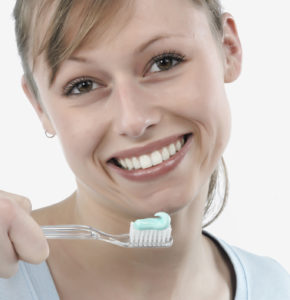
Dental sealants are often useful in children, especially those who still have trouble with maintaining proper dental hygiene routines or have a high-sugar diet. However, it is only a misconception that dental sealants are only necessary during childhood. In fact, age may have no impact at all on a patient’s need for a dental sealant. Sealants may be a necessary option for many adults who are considered high-risk for cavities or tooth decay.
A dental sealant aims to cover indentions and groove’s on the teeth’s surface to prevent them from collecting plaque or harmful bacteria. Sealants prevent the buildup of material that causes tooth decay and helps prevent cavities and the need for costly dental work. However, dental sealants are not necessary for every patient, and a proper dental assessment is needed to determine if sealants are right for each patient. One important method used in dentistry is used to help determine the need for sealants: caries risk assessment. This assessment aims to determine one’s risk for developing a disease or cavity based on a combination of lifestyle and biological factors, as well as a patient’s dental history.
Caries Risk Assessment
The Caries Risk Assessment is a well-known and heavily-utilized procedure in dentistry that can be used to help determine the need for dental sealants. However, the assessment is not dependent on age so much as it is other unique factors. Risk factors could include things like a high-sugar diet, a history of cavities, weak teeth, or oral diseases. For instance, a child struggling with proper oral hygiene who consumes a high-sugar, highly processed diet and has a history of cavities would be considered high risk for the development of new cavities. The child would need sealants. However, if the same child had near impeccable dental hygiene and no history of cavities, sealants wouldn’t be recommended.
An adult with impeccable dental hygiene and little to no history of cavities may not need sealants. However, certain risk factors increase the chance of needing sealants. For instance, an adult with a history of cavities or fillings may need sealants on the surrounding teeth. Adults who have experienced deep decay on the biting surface of multiple teeth would be considered high-risk and would likely benefit from sealants.
Dental Sealants Are Not Just For Children
Sealants are not only beneficial for children, but that’s what insurance companies want you to think. Often, insurance will only cover 100% of the cost of dental sealants for children. There are many reasons why insurance companies may claim that adults don’t need sealants. For instance, it could be based on the idea that adults follow a better diet than children. One suggestion claims that adults are at lower risk for cavities because the surface of the teeth smoothes out over time. Most dental professionals will attest that these things aren’t always the case. Certain dietary habits, teeth grinding, smoking, and improper or inconsistent dental hygiene all put adults at risk for plaque build-up and the development of cavities. Existing cavities are also considered a risk factor because bacteria can spread throughout the mouth and result in cavities in other unprotected teeth.
Should Adults Get Sealants?
Sealants are a widely-practiced and generally effective preventative measure, and adults should get dental sealants at the recommendation of their dentist. The lack of insurance coverage tends to sway some adults into believing that they don’t need sealants. However, if clinical evidence suggests that a patient is at risk for tooth decay, sealants may be the best option for preventing irreparable damage to teeth and avoiding costly dental procedures in the future. The decision to get dental sealants should be between you and your dentist and include an assessment of your unique dental history and lifestyle factors.